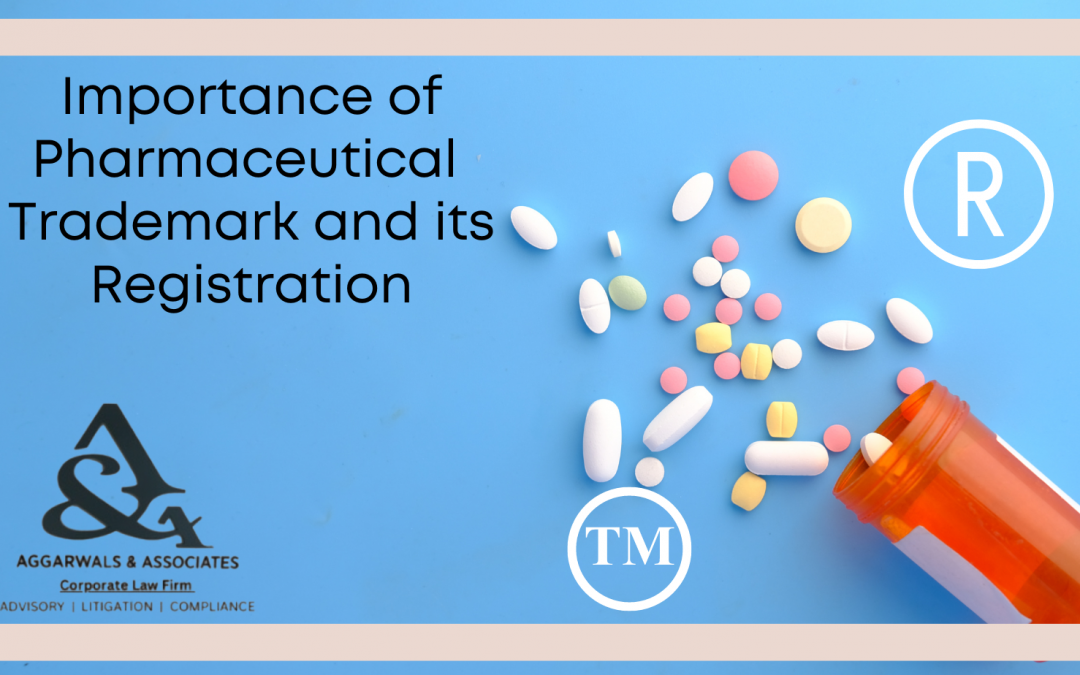Introduction
The India Pharmaceutical Market is growing at a CAGR of 10.7% over the next 5 years. In the pharmaceutical industry,Pharmaceutical trademarks play a vital role in distinguishing the origin and quality of medicines, pharmaceutical products, and related services. Pharmaceutical companies invest substantial resources in developing innovative drugs, establishing brand recognition, and building a reputation for their products. Pharmaceutical Trademarks provide a means to protect these investments and differentiate pharmaceutical products in the marketplace.
What is a Pharmaceutical trademark?
Pharmaceutical trademarks are unique markings or symbols that pharmaceutical businesses use to identify and set their goods apart from competing ones. A trademark enables customers to recognize goods and learn about their quality and safety. Trademarks play a crucial role in the pharmaceutical sector since they aid in separating items that may be identical in shape, substance, or even appearance. They serve as identifiers of the pharmaceutical company or manufacturer, enabling consumers and healthcare professionals to associate specific products with a particular source.A trademark also acts as a quality assurance by giving buyers assurance regarding the security and effectiveness of the branded product as opposed to alternative generic or unidentified items.
What are the benefits of Trademark registration for Pharmaceutical products?
- Trademarks provide a powerful form of protection for pharmaceuticals and medicinal products. This is beneficial because it prevents competitors and counterfeiters from using a company’s brand name or logo. This discourages them from introducing a similar product or copying the branding, leaving the primary company protected from unfair competition.
- Reduces Medical errors as the goal of the trademark selection procedure is to guarantee that the mark is new and distinctive. Due to the similarities of several generic names for pharmaceutical drugs belonging to the same category, many nurses, doctors, and other practitioners find it difficult to recall or spell common names.
- Let customers choose branded medicines as per their preference.
- Additionally, trademark protection increases the value and credibility of the products, as consumers are more likely to choose brands that have the proper legal protection.
- It allows pharmaceutical companies to track the success of particular products and ensure that if product quality worsens, the legal procedure for trademark infringement can be initiated.
What are the important points to keep in mind while registering a Pharmaceutical trademark?
- Checking similarities in sounding Pharmaceutical trademark
The names of drugs should be checked in order to avoid confusion that might cause danger to consumer health. Similarity can be indicated by packaging, colour, or design which can create confusion to recognize a product properly.
- Regulatory Approval in Pharmaceutical Branding
It is important to seek approval from health authorities and trademark registries to sell pharmaceutical products in the market. A proper Trademark search should be completed before proposing a desired trademark to the authorities.
- Classification of a Pharmaceutical Product
Every pharmaceutical product has many names, including a generic or non-proprietary name, a chemical or scientific name, and a brand name that is widely known and used by the general public. According to the WHO on International Non-proprietary Names (INN), Trademarks cannot be obtained from International Non-proprietary Names and must not include their generic stems. To that end, Section 13 of the Indian Trademarks Act, of 1999 states that phrases commonly used for single chemical compounds/elements/INNs are not eligible for Trademark Registration.
- Use of descriptive terms
Key terms for briefly describing the product should be used with the name of the product so that customers identify the qualities of the product while reading the name of the product.
What is the process to register a pharmaceutical trademark?
- Naming a Trademark-
The naming process of a brand starts with listing down potential names by conducting a screening process and global trademark search. A brand name should satisfy the marketing goals and identification of a product. They should make sure that a similar trademark is not being registered which might create confusion, deception, or chances of infringing. Hence, researching about trademark names is necessary to reduce problems faced in the future. - Selection of Trademark category and class-
All products are divided into 45 classes for trademark registration. In the case of pharmaceutical companies, products, and services are classified from classes 5 to 35. - Filing the Trademark Application form-
Once the appropriate class of products is chosen, the applicant can fill up the Form TM-A by a registered trademark attorney/agent, along with all required information about the pharmaceutical business. - Trademark fees payment-
The fees are mentioned in the Trademark Registration for Pharmaceutical Products portal, fees should be paid after submitting the Form. - Receiving acknowledgment-
When the payment is completed, an application number is allotted to the applicant and the status of the application can be checked on the respective portal. - Reviewing Application-
The trademark authorities then review the application for the purpose of examination. The registrar notifies upon the acceptance or refusal of the application. When the trademark is registered it is valid for a time period of 10 years.
Conclusion
A pharmaceutical trademark highlights the success of a medicine producer by forbidding the copying of its products. To summarize, because of the significance of human life, Indian courts are taking a tighter approach to determine the likelihood of confusion in pharmaceutical trademarks. A trademark gives security to products or services under trademark laws and the restrictions set for their use, reuse, assignment, and so on. If a trademark is infringed after being registered without the owner’s permission, the authorities can levy heavy fines.
Ashutosh Saklani and Kashish Rastogi
Associate Lawyer and Associate Intern at Aggarwals & Associates, Mohali


